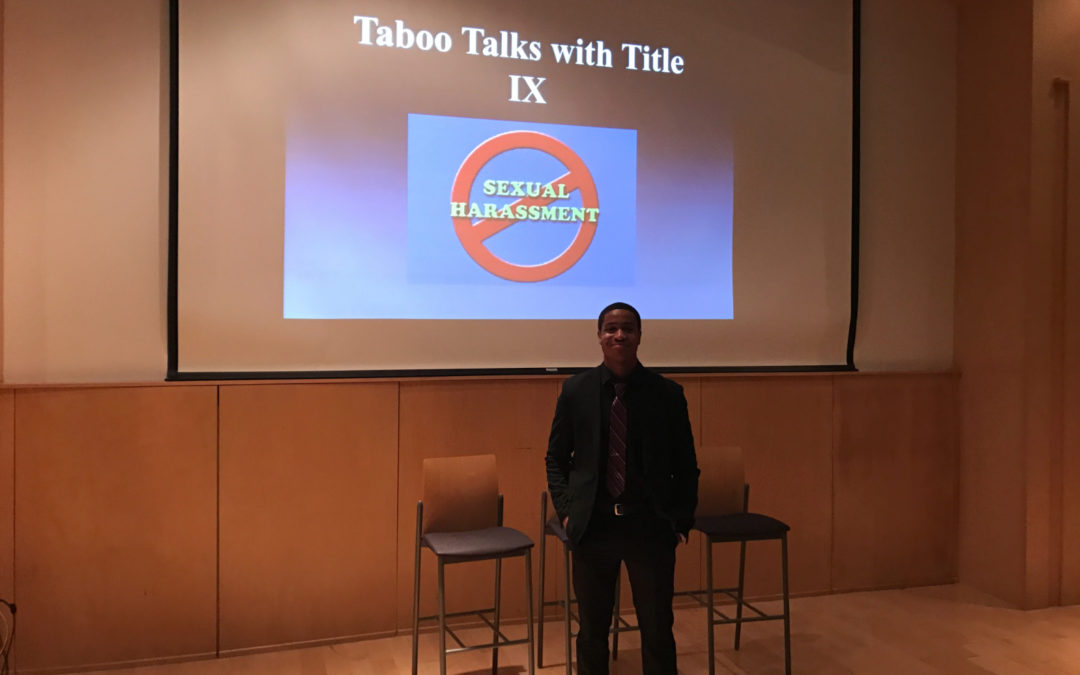On Nov. 1 last week, the Title IX office held an event in Ward Hall titled “Taboo Talks with Title IX.”
The event focused on the Title IX office, sexual misconduct and the Amnesty Clause. Senior Christian Monyei hosted the evening and introduced spoken word performances, facts, discussions, audience polls and film clips.
Monyei opened the night with a quote from Martin Luther King Jr. that states, “Our lives begin to end the day we become silent about things that matter.”
Kathy Hargis, Title IX Coordinator, was also in attendance. She spoke to the small crowd and answered questions that participants had about sexual misconduct on campus. Hargis and Monyei both said that they thought this event would be an excellent way to inform students about this prevalent worldwide issue.
“As a faith based institution, it is important that we address the harder, more uncomfortable topics because that is what we are called to do as Christians,” Monyei said.
One issue that was addressed was Lipscomb’s faculty-wide unequal representation. When asked if they felt males and females had equal representation on campus, 74% of the students in attendance said they felt women were underrepresented.
Many other polls were conducted to understand the climate of safety and inclusivity on campus. ‘Taboo Talks’ served as a safe place for students to address their concerns and to tell their own personal stories of abuse while being surrounded by a supportive group of people. Hargis then urged all in attendance to go to the Title IX office to voice any requests for help or resources they may need regarding discrimination or sexual misconduct.
Many students said they felt that students would be less likely to report a sexual assault if alcohol or drugs were involved for fear of facing consequences. Hargis and Monyei explained that all students are protected while reporting any incidents under the Amnesty Clause.
“The Amnesty Clause is important because a lot of sexual misconduct that occurs on or off campus involves alcohol,” Monyei said. “Reporting sexual misconduct should be at the top of our priorities instead of alcohol being involved taking precedent.”

